Reports
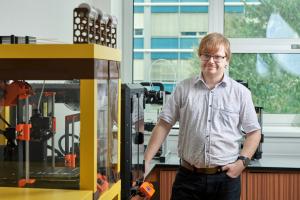
57.4 million tonnes of electroning waste was produced globally in 2021, with total production growing at an average of two million tonnes per year. Yet only 17.4 percent of e-waste is collected and properly recycled. Preparing an alternative process for the production of electronic components that will be more environmentally friendly is the goal of researchers from the Department of Electricotechnology at FEL CTU and the Institute of Polymers at the ICT Prague. Polymers used for 3D printing appear to be a promising material for replacing very difficult to recycle epoxy resins.
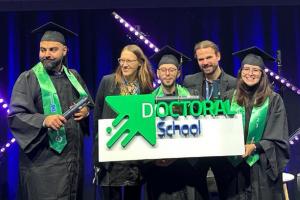
Apply for the EU-funded I&E programme and become part of the international EIT Manufacturing community. This is a unique opportunity not only for those who have innovation and entrepreneurial ambitions in life, but also want to gain new knowledge and experiences with colleagues from other European universities and improve their soft skills.
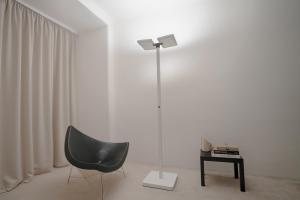
The project "SUNFLOW biodynamic circadian LED floor lamp" has been announced as one of the winners of the international Lighting Design Award 2023 in the category of table and floor lamps. It was realized by a team led by Dr. Jan Havlik from the Department of Circuit Theory in cooperation with the University Centre for Energy Efficient Buildings (UCEEB) of CTU, Spectrasol Ltd. and the National Institute for Mental Health. The principal investigator of the project for the CTU is Ing. arch. Lenka Maierová, Ph.D. from UCEEB CTU, the task of the researchers from the Department of Circuit Theory was to develop the hardware and software of the control unit of the whole lamp.
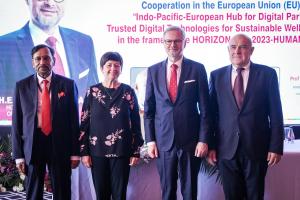
On 11 January 2024, Prime Minister Petr Fiala visited Jaipur at the end of his working trip to India. The official delegation accompanying the Prime Minister included Ondřej Velek, Director of CIIRC CTU, and Prof. Vladimír Mařík, Scientific Director of CIIRC. Together they visited NIMS University, where they met with the school management and academics and discussed the development of joint research projects and the expansion of cooperation between universities and research institutions. They also visited the construction of the Centre for Artificial Intelligence, Robotics and Cybernetics, named after Prof. Vladimir Mařík, to be completed this year.
During the visit to the university, a Memorandum of Cooperation was signed between the Czech Institute of Informatics, Robotics and Cybernetics CTU and the National Institute of Medical Sciences University (NIMS University), which focuses on creating a digital partnership in the Indo-Pacific. NIMS University is one of the leading private educational institutions in India. In the interview, Vladimir Mařík stressed the importance of opening the path for the Czech engineering community to India as a promising technological and economic power.
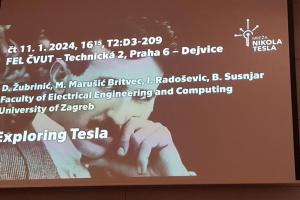
This year's first Physics Thursday at Faculty of Electrical Engineering was dedicated to Nikola Tesla.

Seventy square metres of Prague's Jaroslav Fragner Gallery have become inaccessible to visitors since mid-December. The curator Karolína Plášková erected a construction fence around the centre of the exhibition hall to highlight the growing unaffordability of housing and to present Czech initiatives and artistic or protest actions that call for housing as a basic human right.
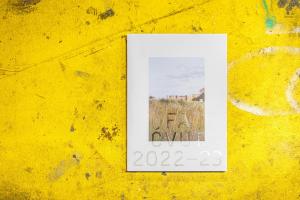
2024/01/11
During the academic year, more than two and a half thousand studio works and final theses will be produced in almost seventy faculty studios. From a diverse range of projects, this year's curatorial team selected the best projects that present shared values across distinctive approaches and different school programs.
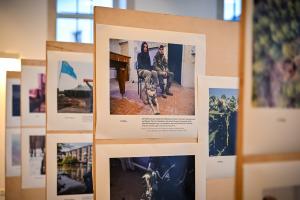
Exhibition of photographs from wartime Ukraine will run in Bethlehem Chapel until the end of January
2024/01/11
A travelling exhibition of photographs 'Ukraine: War and Resistance' opened yesterday at CTU in the St.Wenceslas Hall of the Bethlehem Chapel. This project was initiated by the Fulbright Commission in Ukraine and implemented by the Fulbright Commission in the Czech Republic and CTU in Prague.
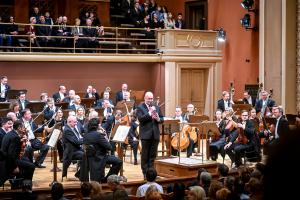
2024/01/10
The traditional New Year's concert for CTU employees, partners and friends took place in the beautiful Dvořák Hall of Rudolfinum on Tuesday 9 January. As every year, there was a huge interest in the concert.
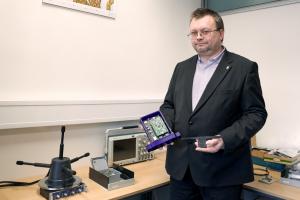
The system is not only able to detect the shooting and determine the shooter's position within seconds but also to estimate the calibre and type of weapon used. Artificial intelligence is involved in identifying the type of weapon, making the system from the Department of Measurement at the Faculty of Electrical Engineering of CTU superior to existing technologies. The acoustic detector, which can distinguish gunshots from false alarms with a 99 percent success rate, will be useful for both special military and civilian use in buildings such as schools hospitals, and urban areas.